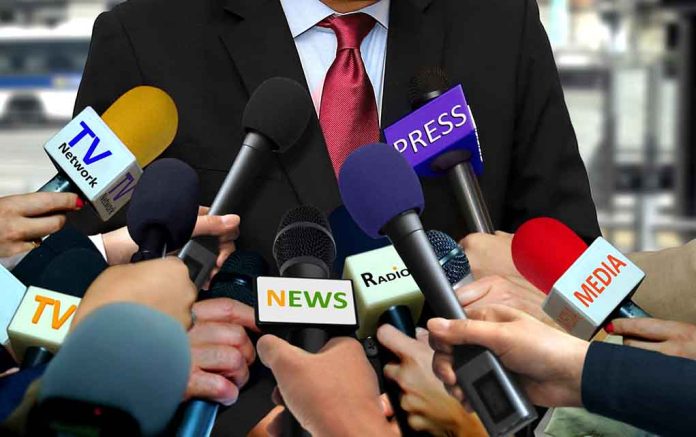
The recent election loss for Kamala Harris has sparked a crucial reassessment of public trust in media, casting a spotlight on the need for journalism to realign with American sentiments.
At a Glance
- Kamala Harris’s loss highlights disconnects in media narratives and American public sentiment.
- Declining trust in mainstream media urges a strategic shift to restore credibility.
- Innovative journalism approaches are needed to bridge the trust gap.
- The media’s future role as a reliable information source is under reevaluation.
The Media Disconnect
Vice President Kamala Harris’s electoral defeat has underlined a growing disconnect between media narratives and public sentiment. During her campaign, Harris toured several battleground states and distinguished herself from President-elect Donald Trump. Despite Arnold Schwarzenegger’s endorsement and efforts to question Trump’s influence, Harris’s campaign struggled to retain the support of key demographic groups, revealing how media portrayal contrasted with voter realities.
Public trust in media has visibly declined, prompting experts to call for introspection within journalistic institutions. Harris had distanced herself from remarks by President Biden that seemed to insult Trump supporters, stating, “Let me be clear, I strongly disagree with any criticism of people based on who they vote for.”
However, the damage was done. The media’s portrayal of such events often appeared out of sync with public opinion, reinforcing perceptions of bias and detachment from everyday concerns.
Bridging the Trust Gap
As journalism faces the challenge of restoring credibility, focusing on transparent and unbiased reporting becomes paramount. Michelle Obama urged voters in Georgia to participate in the election, while Trump used reports of suspicious voter registrations in Pennsylvania to spotlight election flaws. This atmosphere underscores the complexities of media coverage and its impact on election integrity. A shift in media strategy, from sensationalism to fact-centric reporting, could potentially bridge the trust gap between journalists and the audience.
Credible journalism is more important than ever, especially as Trump prepares for his return to the White House. Vice President Harris had ramped up her attacks, labeling him as “unstable” and “unhinged,” while her campaign used former national security aides to question his fitness. However, a fairer and more balanced media landscape would allow voters to focus on the real issues at hand, rather than being distracted by partisan rhetoric. It’s crucial for the electorate to have access to honest information to make decisions that align with America’s best interests.
Innovative Approaches to Journalism
Understanding the media’s changing role requires a new approach to reporting that speaks directly to the American people. Honest and transparent discussions can help audiences reconnect with the true essence of the news, not just filtered narratives.
In conclusion, Kamala Harris’s election loss highlights a growing rift between media narratives and the concerns of everyday Americans. As public trust in mainstream journalism continues to erode, the need for a more honest, transparent, and unbiased approach to reporting has never been clearer.
A commitment to fair and fact-driven journalism can help restore credibility and ensure that voters have access to the information they need to make informed decisions that reflect their values and priorities. In this pivotal moment, it is vital that journalism realigns with the true voice of the American people.








